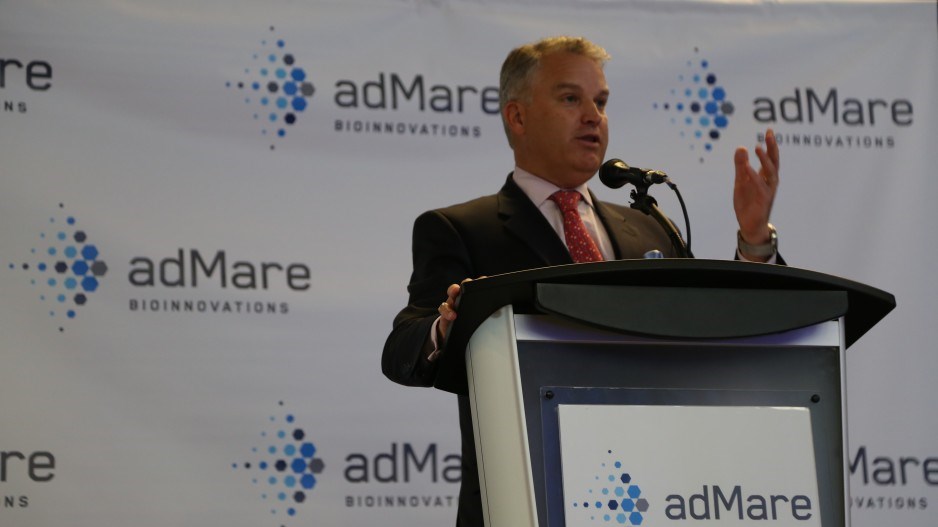Two of Canada’s leading life-science innovation incubators have joined forces, creating a new organization that will be “working from sea to sea, and reaching globally,” according to a joint statement.
The Vancouver-based CDRD and Montreal-based NEOMED Institute announced last week they will bring their resources together under a new organization: adMare BioInnovations.
“It's important that we symbolize with a new name, the scale, economic opportunity and potential that this enterprise is designed to exploit,” said Gordon McCauley, president and CEO of adMare, during the celebration of the announcement on Friday, May 31.
According to a company statement, the new enterprise’s name is a reference to Canada’s official motto, ‘a Mari usque ad Mare,’ which translates to ‘from sea to sea,’ representing adMare’s reach across Canada.
adMare’s mission, based on the existing work of CDRD and NEOMED, is to translate academic research into companies of scale worthy of investment, use infrastructure to support these companies as they scale up and train personnel at different levels to ensure the success of these ventures.
McCauley, who was president and CEO of CDRD, told Business in Vancouver the two organizations are proven successes. He highlighted how CDRD has launched seven companies, attracting a total investment of $270 million, while NEOMED is currently home to 32 companies and acts as an innovation hub with over 300 employees.
“This is a question of saying Canada is too small and the world is too big. We need to focus our resources together,” he said, acknowledging that “if you look at competitive pressures from similar sorts of organizations, or similar public policy initiatives around the world, that competition is fierce.”
However, he’s confident that the quality of Canada’s academic research and innovation infrastructure allows the country to “punch well above its weight.”
“Canada is a global powerhouse when it comes to academic research. We represent 0.5% of the world’s population and 5% of the innovation output. And what that tells you is we have extraordinary research infrastructure in Canada,” McCauley said.
adMare’s management and board of directors are drawn from CDRD and NEOMED, with a presence in both Vancouver and Montreal that includes stakeholders from academia, the life sciences industry, the investment community and the government.
Dr. Helen Burt, associate vice-president for research and innovation at the University of British Columbia and a member of adMare’s board of directors, emphasized during her remarks that the life sciences industry is “highly collaborative.”
“None of us can do it on our own. So it’s imperative that we bring together our leading academic researchers, together with commercial know-how, investment capital, and of course governments, other funding partner, and a supported public policy environment,” she said.




